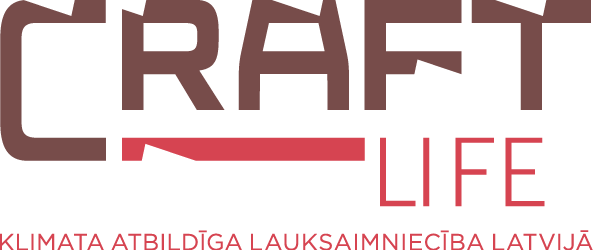Project "Climate Responsible Agriculture for Latvia"
LIFE16 CCM/LV/000083
Project manager
Ģirts Strazdiņš
Phone +371 67 830 999
girts.strazdins@ldf.lv

THE OBJECTIVE OF THE PROJECT IS TO IMPLEMENT, TEST, EVALUATE, PROMOTE AND PROVIDE GUIDANCE ON EFFECTIVE AND ECONOMICALLY FEASIBLE MEANS FOR THE REDUCTION OF AGRICULTURAL GHG EMISSIONS
IMPLEMENTATION ACTIVITIES DEMONSTRATE INCORPORATION OF BIOCHAR INTO THE SOIL TO IMPROVE SOIL FERTILITY AND THE ABILITY TO CAPTURE ATMOSPHERIC CO2
IMPLEMENTATION ACTIVITIES DEMONSTRATE INCORPORATION OF BIOCHAR INTO THE SOIL TO IMPROVE SOIL FERTILITY AND THE ABILITY TO CAPTURE ATMOSPHERIC CO2


